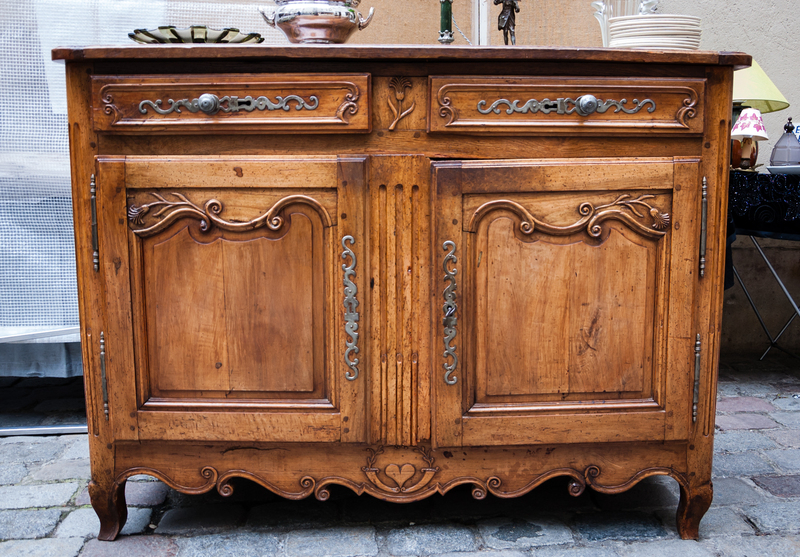How to Safely and Cheaply Dispose of Bulky Waste Items
When it's time to clear out old furniture, large appliances, or other oversized household items, responsibly disposing of bulky waste items can be both challenging and expensive. If you've ever wondered how to safely and cheaply dispose of bulky waste items while minimizing environmental impact, you've come to the right place. This comprehensive guide covers all cost-effective, safe, and practical options available for bulky waste disposal, ensuring compliance with local regulations and maximizing recycling opportunities.
Understanding Bulky Waste: What Qualifies as Bulky Items?
Not every item in your home can be tossed in the regular trash. Bulky waste, sometimes called large waste or oversized refuse, generally refers to items that are too big to fit in standard garbage bins. Common examples include:
- Furniture: Couches, chairs, tables, mattresses, bed frames, dressers, shelving units
- Large Appliances: Refrigerators, freezers, washing machines, dryers, stoves, ovens
- Other Big Items: Carpets, rugs, bathtubs, toilets, hot tubs, exercise equipment, TVs, old computers, playground equipment
Properly handling these items is crucial because most local garbage services reject oversized refuse due to landfill restrictions, hazardous materials, or recycling requirements.

Why Is Responsible Bulky Item Disposal Important?
Improper disposal of large waste items can lead to:
- Fines and penalties for illegal dumping.
- Environmental harm due to improper treatment of hazardous components (like Freon in appliances).
- Poor aesthetics and community health issues from pileups of discarded items in public areas or alleyways.
Cheapest Bulky Waste Disposal Methods
Let's break down the most economical options for disposing of bulky goods, with tips to optimize safety and eco-friendliness.
1. Utilize Free or Low-Cost Municipal Collection Services
Most cities offer bulk waste collection days or scheduled pickups for residents. Here's what you need to know:
- Book in Advance: Many municipalities require you to schedule a pickup by calling or submitting a request online.
- Check the Rules: Limits may be set on the type, size, and quantity of items. Some items (like mattresses) might need to be wrapped in plastic or labeled.
- Fees: Some cities collect bulky items for free a certain number of times per year, while others charge a nominal fee per item or per load.
- Where to Place Items: Typically, items should be placed on your curbside or in a designated area on the scheduled date.
2. Take Advantage of Recycling Centers & Drop-Off Points
If you have access to transport, you can save money by delivering bulky waste directly to:
- Public Recycling Centers: Many centers accept items such as mattresses, furniture, electronics, and appliances for free or a small fee.
- Specialized Scrap Yards: Appliances and metal items might be accepted for free if they contain valuable materials.
- Community Cleanup Events: Townships or neighborhoods sometimes host no-cost bulky item drop-off events.
3. Donate or Give Away Usable Items
One of the best ways to cheaply dispose of bulky goods is to avoid disposal altogether! If your item is in usable condition:
- Charity Shops: Many organizations accept furniture, appliances, and other large items for resale or donation. Some, like Habitat for Humanity ReStores or Goodwill, may even offer free pick-up.
- Online Marketplaces: Websites such as Craigslist, Freecycle, Facebook Marketplace, or local community groups are excellent for giving away items quickly.
- Friends and Neighbors: Ask around--someone may need exactly what you're getting rid of.
4. Repurpose or Upcycle for DIY and Art Projects
Before considering bulky item disposal, think creatively:
- Furniture: Old chairs can become garden planters. Tables can be refinished, painted, or cut down for new uses.
- Appliances: Salvage parts (like motors or shelves) for crafts or repairs.
- Mattresses: Springs and padding are often used in art or gardening.
5. Hire Affordable Private Junk Removal Services
If you've exhausted all other options, consider hiring junk removal companies. Compare quotes from:
- Local independent haulers
- National chains (like 1-800-GOT-JUNK?, Junk King, College Hunks Hauling Junk, etc.)
- Task apps (like TaskRabbit or Handy, where individuals may pick up bulky items at reduced rates)
How to Prepare Bulky Items Before Disposal
Proper preparation is a key step in cheap and safe bulky waste removal. Follow these guidelines before placing items out for collection, donation, or drop-off:
- Disassemble if Possible: Break items down into manageable pieces to reduce space and make handling easier.
- Remove Hazardous Components: For electronics and appliances, remove batteries, fluids, Freon, or bulbs as required by local rules.
- Clean Items: Especially for donations, a quick wipe down boosts acceptance rates.
- Label as Needed: Stickers marking 'For Pickup' or 'Bulk Waste' can help avoid confusion and ensure proper removal.
Bulky Waste Items That Need Special Handling
Some oversized items require extra precautions for safe and lawful disposal:
- Mattresses: Often contain materials regulated by local health laws. Check if you need to seal them in specific bags.
- Refrigerators and Freezers: Must be drained of coolant gases (often by a licensed professional) before pickup.
- Televisions, Computers, and Electronics (E-waste): May be banned from landfill disposal and should be taken to certified e-recycling drop-offs.
- Household Hazardous Waste: Items with chemicals (paint cans, pool chemicals, pesticides) should be dealt with through household hazardous waste programs, not typical bulk collections.
Sustainable Bulky Item Disposal: Protecting the Environment
Spending less doesn't mean cutting corners on safety or environmental responsibility. The most sustainable ways to get rid of large waste items are:
- Choose Reuse or Recycling First: Always prioritize donation, repurposing, or recycling before disposal.
- Use Proper Drop-Offs or Services: Select facilities or haulers who guarantee responsible handling and environmental compliance.
- Avoid Dumping: Illegal dumping harms wildlife, communities, and can result in heavy fines or legal trouble.
Frequently Asked Questions About Cheap Bulky Waste Disposal
Can I leave bulky items next to my trash bin?
Usually, no. Most regular waste collectors will not remove unscheduled or unregistered bulky items, and you may face a fine. Always arrange proper pickup or drop-off.
How much does bulky item collection cost?
The cost varies by location:
- Some cities offer a limited number of free bulky collections each year.
- After free allowances, fees can range from $20-$100 per item or load, depending on size and weight.
- Private junk removal may cost more, but some companies offer discounts for multiple items or curbside pickups.
Are there penalties for illegal dumping of bulky waste?
Yes! Illegal dumping can result in substantial fines (from hundreds to thousands of dollars), especially for hazardous or hard-to-handle waste. It also poses significant community health and environmental risks.
Where can I find free removal for large items?
Here are some options:
- Annual or semi-annual bulk waste collection events coordinated by your city or township.
- Charitable organizations offering free furniture or appliance pickup for donations.
- Gifting or giving away via online platforms to anyone willing to haul your items away.
Tips for Saving Money on Bulky Waste Removal
- Plan Ahead: Waiting for city "bulk pickup days" is cheaper than arranging an immediate private collection.
- Combine Items: If you and a neighbor both have large items, pooling resources might save on pickup or drop-off costs.
- Research Local Regulations: Some municipalities subsidize bulky waste removal or offer exemptions for the elderly, disabled, or low-income households.
- Dismantle Items: Breaking items down into standard trash-sized pieces (if rules allow) might make disposal cheaper or even free.
- Look for "Buy Nothing" or Community Giveaways: Encourages others to reuse your unwanted items, skipping the removal cost entirely.
How to Safely Move and Handle Large Waste Items
Safety is vital when dealing with heavy, awkward, or sharp-edged objects. For safe bulky item disposal:
- Use Proper Lifting Techniques: Bend at the knees, keep your back straight, and lift with your legs. Avoid twisting movements.
- Wear Protective Gear: Gloves, closed-toed shoes, and even a back support belt can prevent injuries.
- Team Up: Don't try to move large items alone--get family, friends, or neighbors to help.
- Clear a Pathway: Remove tripping hazards, and have a plan for where the item will go before lifting.
- Rent Equipment: Dollies, hand trucks, or furniture sliders can make moving items much easier.

Summary: Safe, Cheap, and Eco-Friendly Bulky Waste Disposal
Disposing of bulky items like broken furniture, old appliances, or unwanted mattresses doesn't have to be expensive, difficult, or environmentally damaging. Follow these tips to safely and cheaply dispose of bulky waste items:
- Use free or low-cost municipal collection services whenever possible.
- Look for recycling centers, drop-offs, or "free days."
- Donate, gift, or upcycle usable large items to avoid disposal costs.
- Prepare items according to local rules--clean, disassemble, and label.
- For tricky items, compare quotes from junk removal companies, and ask about discounts.
Take the extra step: By choosing responsible recycling and ethical disposal, you'll help your community, protect the environment, and save money in the process. Make the most of the resources and organizations available--your wallet and the planet will both thank you!
Useful Resources for Local Bulky Waste Removal
- Earth911: Locate recycling centers by item type and zip code
- Local Council or City Website: Search terms like "bulk waste pickup + your city" for specific local regulations, fees, and schedules.
- EPA Bulky & Large Item Disposal Guide: How to safely dispose of various types of large household waste
- Donation Organizations: Goodwill, Salvation Army, Habitat for Humanity ReStores (check your local listings for free pick-up availability).
If you're facing a tough cleanup challenge, use this guide to dispose of oversized junk affordably, safely, and with a clear conscience. Happy decluttering!
